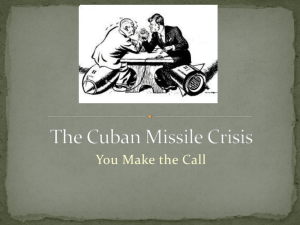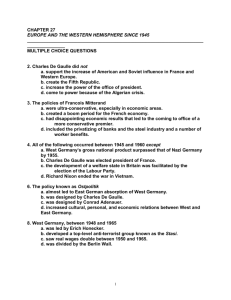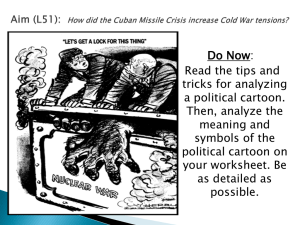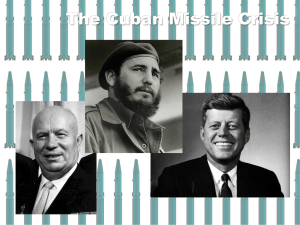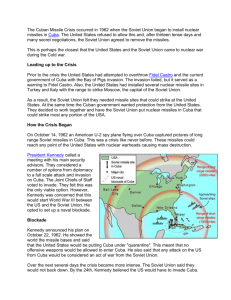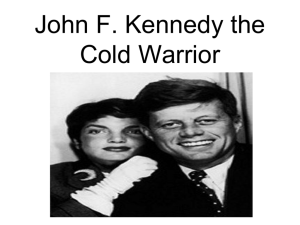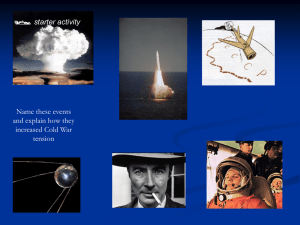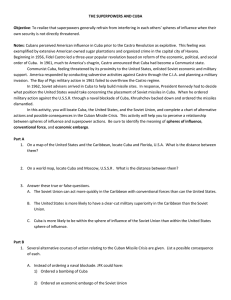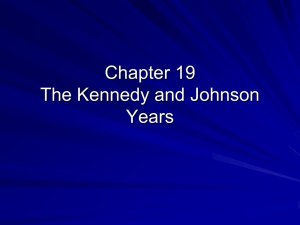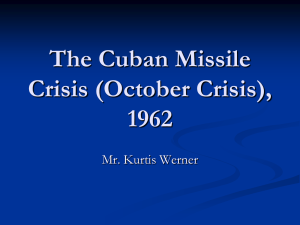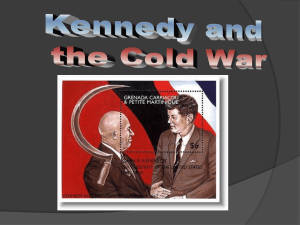Role-Playing Handout
advertisement
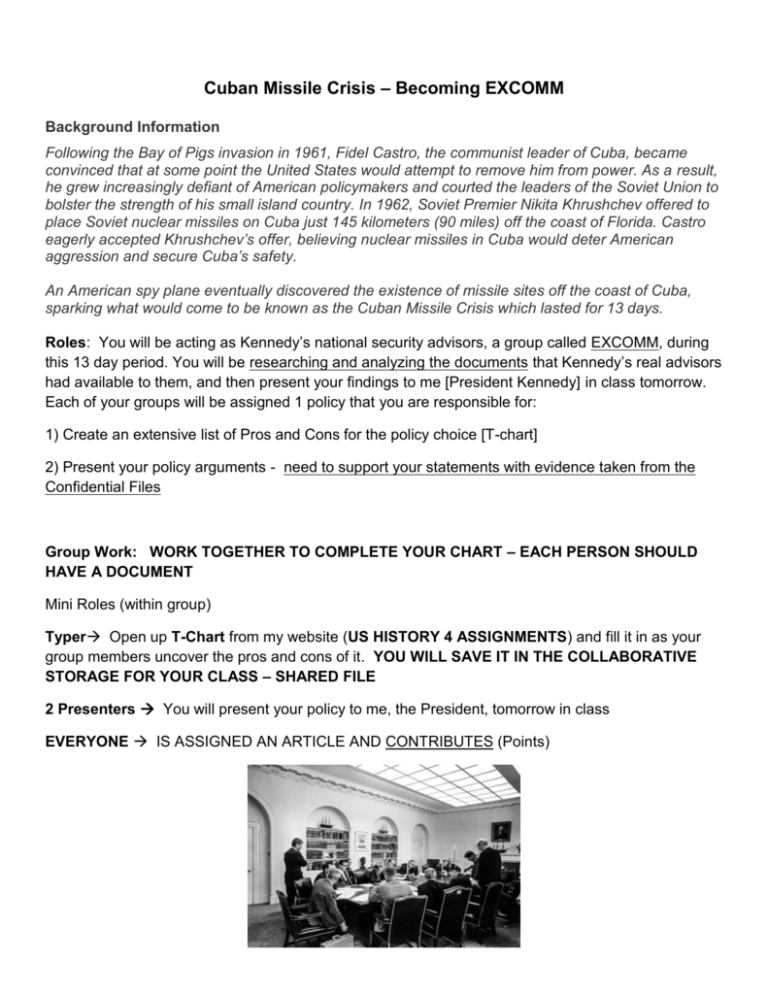
Cuban Missile Crisis – Becoming EXCOMM Background Information Following the Bay of Pigs invasion in 1961, Fidel Castro, the communist leader of Cuba, became convinced that at some point the United States would attempt to remove him from power. As a result, he grew increasingly defiant of American policymakers and courted the leaders of the Soviet Union to bolster the strength of his small island country. In 1962, Soviet Premier Nikita Khrushchev offered to place Soviet nuclear missiles on Cuba just 145 kilometers (90 miles) off the coast of Florida. Castro eagerly accepted Khrushchev’s offer, believing nuclear missiles in Cuba would deter American aggression and secure Cuba’s safety. An American spy plane eventually discovered the existence of missile sites off the coast of Cuba, sparking what would come to be known as the Cuban Missile Crisis which lasted for 13 days. Roles: You will be acting as Kennedy’s national security advisors, a group called EXCOMM, during this 13 day period. You will be researching and analyzing the documents that Kennedy’s real advisors had available to them, and then present your findings to me [President Kennedy] in class tomorrow. Each of your groups will be assigned 1 policy that you are responsible for: 1) Create an extensive list of Pros and Cons for the policy choice [T-chart] 2) Present your policy arguments - need to support your statements with evidence taken from the Confidential Files Group Work: WORK TOGETHER TO COMPLETE YOUR CHART – EACH PERSON SHOULD HAVE A DOCUMENT Mini Roles (within group) Typer Open up T-Chart from my website (US HISTORY 4 ASSIGNMENTS) and fill it in as your group members uncover the pros and cons of it. YOU WILL SAVE IT IN THE COLLABORATIVE STORAGE FOR YOUR CLASS – SHARED FILE 2 Presenters You will present your policy to me, the President, tomorrow in class EVERYONE IS ASSIGNED AN ARTICLE AND CONTRIBUTES (Points) Confidential FILES FOR EXCOMM MEMBERS ONLY EXCOMM MEMBERS JFK (John F. Kennedy) – President of the United States Robert McNamara - Secretary of Defense ALSO: George Ball - Under Secretary of State McGeorge Bundy - National Security Advisor C. Douglas Dillon - Secretary of the Treasury Roswell Gilpatric - Deputy Secretary of Defense U. Alexis Johnson - Deputy Undersecretary of State Theodore Sorensen - Special Council (Chief speechwriter and close confident to President) Lyndon Johnson - Vice President Edwin “Ed” Martin - Assistant Secretary of State John McCone - CIA Director Paul Nitze - Assistant Secretary of Defense Walt Rostow - State policy planner General Maxwell Taylor - Chairman of the Dean Rusk – Secretary of State Joint Chiefs of Staff General Walter Sweeney - Tactical Air Command Other names you will come across: Robert Kennedy – Attorney General Nikita Khrushchev – First Secretary of the Communist Party of the Soviet Union (leader) from 1953-1964 Anatoly Dobrynin - Soviet Ambassador to the United States during the Missile Crisis Anastas Mikoyan - First Deputy Premier under Khrushchev (second most powerful figure in the Soviet Union at the time) Fidel Castro – Prime Minister of Cuba from 1959 to 1976 Raul Castro – brother of Fidel Castro; top-ranking military officer and advisor Manuel Urrutia Lleó – President of Cuba for 6 months after Revolution (had disputes with Fidel)
